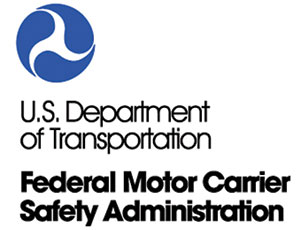Senior Reporter
ATA Touts Outgoing FMCSA Deputy Administrator Meera Joshi

[Stay on top of transportation news: Get TTNews in your inbox.]
The announcement that Meera Joshi would depart her post as acting administrator of the Federal Motor Carrier Safety Administration drew words of praise for her service to the transportation industry from American Trucking Associations.
“Meera Joshi has led FMCSA through historic times — as an unprecedented global pandemic, countless natural disasters, a cyberattack on a major domestic pipeline and widespread workforce shortages challenged the freight economy in ways never before seen,” ATA President Chris Spear said in a Dec. 20 statement. “Throughout her tenure, the trucking industry has found Deputy Administrator Joshi to be a candid, collaborative and valued partner in government. Her use of data and stakeholder input drove a sound policy process designed to meet real-world needs. Her leadership has helped to ensure our industry could continue to safely serve the American people and meet the demands of the economy during these incredible times.”
Joshi in December announced she would move into the role of deputy mayor for operations when the administration of New York City Mayor-elect Eric Adams took office on Jan. 1, 2022.

Joshi, who guided FMCSA since the start of President Joe Biden’s presidency, was nominated to the role of the agency’s administrator in April 2021. However, her nomination, as well as the nominations of senior departments of transportation and commerce officials, were held up by Sen. Rick Scott (R-Fla.).
A member of the Senate Commerce Committee, Scott insisted for several months that the secretaries of transportation and commerce testify before the committee on matters of the freight supply chain. Without such testimony from the Cabinet members, the senator pledged to “hold all Department of Transportation” nominees.

Cantwell
In a letter this fall to Commerce Committee Chairwoman Maria Cantwell (D-Wash.), Scott said, “I have heard from families and businesses in my state that simply keeping shelves stocked is an everyday challenge, and I find it extremely concerning that members of the Biden administration seem to be focused more on playing TV commentator than finding real solutions to address these problems.”
With the Senate adjourned until early January, procedures dictate for certain nominees to be renominated by the president, such as most of the transportation nominees blocked by Scott.
At her nomination hearing in September, Joshi told the Senate Commerce panel that technologies related to self-driving vehicles and vehicle-to-vehicle communication would serve to modernize freight and passenger sectors while promoting safety.
“We are indeed in a time of incredible transition within the industry,” she told the senators. “The transition from mechanical to [artificial intelligence] occurs but for FMCSA, the mission of safety is the No. 1 priority, stays the same. So our challenge is to ensure that our regulations to uphold roadway safety translate into an [artificial intelligence] world.”
Expanding on her qualifications for the leadership role at FMCSA, she noted, “I worked collaboratively with drivers, large and small operators, tech companies, safety and labor advocates, elected officials, their constituents, passengers, as well as the general public. The result of these productive relationships was balanced policy that raised safety and accountability standards for all.”
In October, the committee approved her nomination by a 22-6 vote. Joshi had garnered the endorsement of transportation leaders, including Cantwell. The chairwoman said at the time, “If confirmed, Joshi would be responsible for directing the agency’s national safety and enforcement program.”
Before joining the Biden administration, Joshi led the New York City Taxi and Limousine Commission. She earned degrees from the University of Pennsylvania.
This year, the White House launched a task force meant to aid the private sector with alleviating supply chain bottlenecks at commercial ports and freight hubs.
Want more news? Listen to today's daily briefing below or go here for more info:




